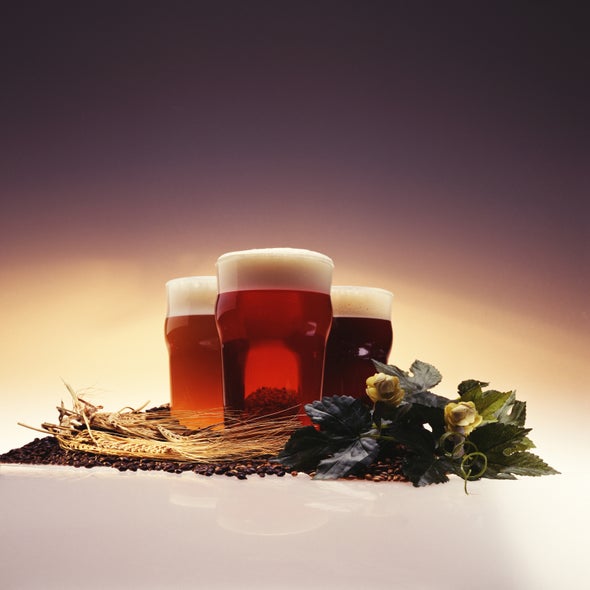(单词翻译:单击)
听力文本
Hi, I'm Scientific American podcast editor Steve Mirsky. And here's a short piece from the December 2018 issue of the magazine, in the section called Advances: Dispatches from the Frontiers of Science, Technology and Medicine.
The article is titled "Quick Hits," and it's a rundown of some science and technology stories from around the globe, compiled by editorial contributor Ankur Paliwal.
FROM ECUADOR
Scientists have identified a new hummingbird species in the Ecuadorian Andes. But very few of the birds exist, and the species is considered critically endangered. Its habitat is shrinking as nearby communities burn the native landscape to make way for cattle grazing.
FROM GERMANY
Germany has launched the world's first hydrogen powered trains in an effort to reduce its dependence on fossil fuels. The trains, which can reach speeds up to 140 kilometers per hour, have fuel cells that convert hydrogen and oxygen into electricity.
FROM RWANDA
Rwanda is setting up its first research center for noncommunicable diseases, including diabetes and cancer. Such illnesses currently account for 46 percent of the country's total deaths by all diseases — a 100 percent increase from 2000.
FROM CHINA
The Chinese government is requiring athletes who want to compete for the country in the 2022 Beijing Olympic Games to have their genomes sequenced. Officials say this practice is to screen for medical conditions that could affect the competitors' performance; some scientists have called it discriminatory.
FROM PAKISTAN
Researchers have detected the flesh-eating amoeba Naegleria fowleri in the domestic water supply of Karachi, Pakistan's most populous city. The metropolis of 15 million people has seen an alarming uptick in cases of a fatal type of encephalitis caused by the parasite.

AND FROM ISRAEL
Scientists have discovered the world's oldest-known brewery in a cave near Haifa. They found residue from 13,000-year-old wheat and barley-based beer that resembled porridge. The previous earliest known brewery was thought to be 5,000 years old.
That was Quick Hits by Ankur Paliwal.
参考译文
大家好,我是《科学美国人》播客编辑史蒂夫·米尔斯基。下面是本杂志2018年11月刊的一篇短文,摘自“进展:科学、技术和医学前沿快报”版块。
这篇文章名为《要闻快讯》,汇集了全球各地科学和技术新闻报道的摘要,由编辑安古尔·帕里瓦汇总。
厄瓜多尔
科学家在厄瓜多尔安第斯山脉发现了新品种蜂鸟。但这种蜂鸟的现存数量非常少,而且这个物种被认为是极度濒危物种。临近社区为放牧牛群而烧毁了当地的自然景观,这导致该品种蜂鸟的栖息地不断缩小。
德国
德国推出全球首批氢动力列车,以减少该国对化石燃料的依赖。列车时速可达140公里每小时,其燃料电池可将氢和氧转化为电能。
卢旺达
卢旺达将建立该国首个非传染性疾病研究中心,涵盖糖尿病和癌症。目前,这类疾病占该国疾病死亡总数的46%,自2000年来增长了100%。
中国
中国政府要求希望代表国家征战2022年北京冬奥会的运动员进行基因组测序。官员表示,此举旨在筛查可能影响运动员表现的健康状况,但一些科学家认为这种做法带有歧视性。
巴基斯坦
卡拉奇是巴基斯坦人口最多的城市,而研究人员在该市的家庭供水系统中检测出了食脑变形虫“福氏耐格里阿米巴原虫”。在这座拥有1500万人口的大都市,寄生虫导致的一种致命脑炎病例出现令人震惊的上升。
以色列
科学家在海法附近的一个洞穴发现了世界上已知最古老的啤酒厂。他们发现了13000年前以小麦和燕麦为主要原料的啤酒残留物,这些残留物很像稀粥。人们此前认为,已知最古老的啤酒厂拥有5000年历史。
以上是安古尔·帕里瓦汇总的《要闻快讯》。
译文为可可英语翻译,未经授权请勿转载!
重点讲解
重点讲解:
1. make way for 让…通过;给…让路;让出位置;
Tropical forest is felled to make way for grassland.
热带森林被砍伐,腾出地方做草地。
2. up to 高达;多达;
The sun's rays can penetrate water up to 10 feet.
太阳的光线可以穿透到10英尺深的水下。
3. set up 创建;建立;安排;组建;
We have set up a task force to look at the question of women returning to work.
我们已经成立了一个工作组去调查妇女复工的问题。
4. account for (数量或比例上)占;
Computers account for 5% of the country's commercial electricity consumption.
计算机占去该国商业用电的5%。


